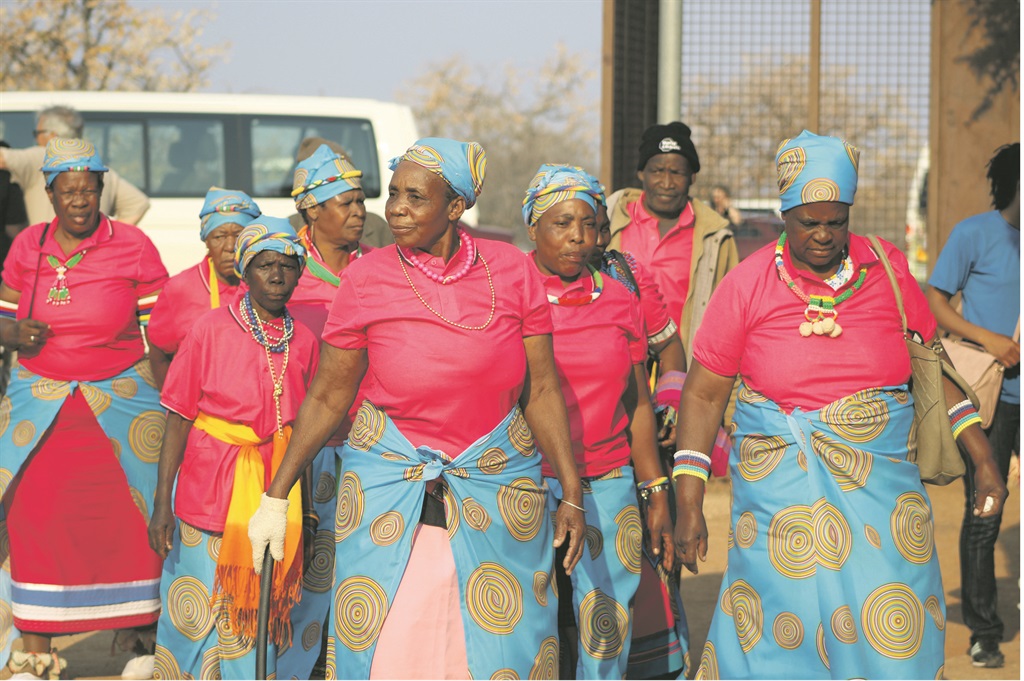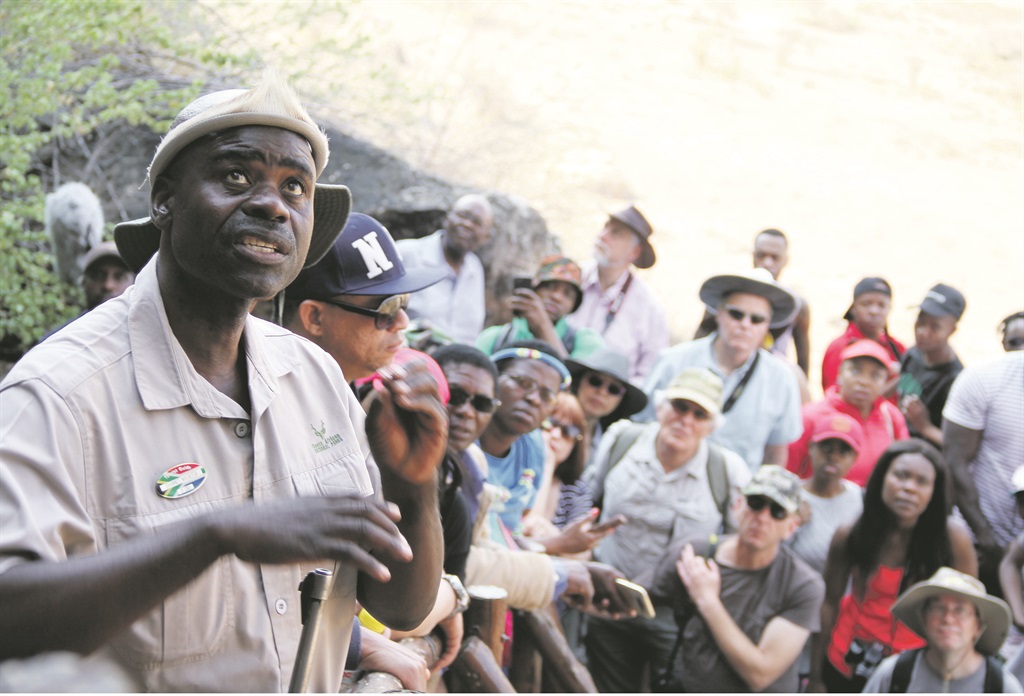
It was a weekend of cultural immersion as Lerato Morotolo travelled to Mapungubwe in Limpopo and met with the descendants of southern Africa’s famous precolonial kingdom.
The nine-hour trip in the sweltering heat fell into obscurity as soon as we stepped out of the minibus and the gracious, elderly women of the Dikakapa Dance Group took to the makeshift stage to welcome us with a beautiful Sepedi dance.
Moving in formation, their arms in unison, they rocked to the beat of two drums, immediately making the small group of journalists aware that we were on sacred ground, in a land of cultural diversity and rich history.
We were invited here by SA National Parks (SANParks) to partake in its second annual cultural and spiritual experiences lecture series at the Mapungubwe National Park and World Heritage Site.
The sacred hill
By 7am on Saturday morning, the sun already beating down, we walk to Mapungubwe Hill, the site of one of the ancient and pioneering kingdoms that thrived in southern Africa before colonialism.
In the group are members of the local communities that live around Mapungubwe; they are descendants of the original inhabitants. They move up the hill ahead of us to perform the rituals that will make the ancestors comfortable with our presence. They carry with them umqombothi (traditional beer) and some of the artefacts they say were found at Mapungubwe.
The communion with the ancestors begins with the pouring of the beer on the ground where the elders are buried, their clan names are chanted before a request is made for permission to trespass and for protection. Only the families of the original inhabitants are allowed to perform these sacred rites.
A member of the Tshivhula royal family, Lovemore Tshivhula, explains that “we do the ritual every year because according to our culture and tradition, September is the first month of the year, not January. During the first month we go to the hill and we speak to the ancestors and the gods, and we ask for peace, stability, rain and good health. We also take seeds for blessing, that there will be a good harvest. It is our customary belief that the good or bad things that happen come from our gods and by pleasing them accordingly all will go well.”
SANParks tourism and marketing boss Hapiloe Sello listens in and adds her views: “As custodians of the heritage site, we respect all customs and traditions that are associated with it. I did mention earlier that we are walking on hallowed ground. I said that because people of Mapungubwe treat it as such, we venerate the respect of tradition and mirror them. We acknowledge and respect the customs and land we walk upon because we believe it is a very sacred place.” Mapungubwe is better known to most as a significant archaeological site that reveals clues about a kingdom that was so large that it included present-day Zimbabwe and Botswana, where Africans unlocked the secrets of, among other innovations, smelting gold.
“What is fascinating is how the findings show that it was a sophisticated kingdom that was trading with societies as far as the East, in ivory and gold,” agrees Sello. The site’s famous symbol is a medieval gold rhinoceros.
After a long visit at the sacred hill, we made our way down to the museum and interpretation centre where the history we’d just learnt of was brought to life. The holy grail of the museum is a replica of the golden rhino, which was discovered in a grave in 1932.
We were then introduced to the Modjadji, or Rain Queen, the hereditary queen of the Balobedu, and her guardian, ANC stalwart Mathole Motshekga, who speaks on her behalf.
Time before time
That night, at a special heritage gathering held under the stars in the heart of the park, the weekend’s festivities were formally opened by the renowned researcher and publisher, Matshikiri Christopher Neluvhalani, who titled his talk Mapungubwe: Time Before Time Became Time.
What followed was a serious lecture given by Motshekga, former Gauteng premier and executive director of the Kara Heritage Institute, who fried our brains with a discussion on Mapungubwe’s archaeoastronomical legacy – yup, you read that right – and how that relates to social cohesion. He spoke of the origin of Mapungubwe and what it means, and about the beginning of humankind.
As with any decent African celebration, music shaped the night. Performers included the likes of singer/songwriter Tribute “Birdie” Mboweni and Thabang Tabane – son of the legendary Philip Nchipi Tabane, who pioneered the Malombo jazz tradition in the early 1960s. The traditional banquet that followed – insects included – was the edible equivalent of the rich and incredible music.
For our hosts and for the locals, Mapungubwe is not just some archaeological site, but a special place that harbours oral history and cultural understanding, as well as cosmological and spiritual perspective. It is a place where people come to share their stories of the ancients, all the way back to the mythologies that inform our wisdom. A place that represents the opposite of the colonial depiction of savagery; of an African civilisation of technological innovation and pioneering intellectualism. Mapungubwe is a living history that informs the Wakandas that live in the popular imagination.




 Publications
Publications
 Partners
Partners










